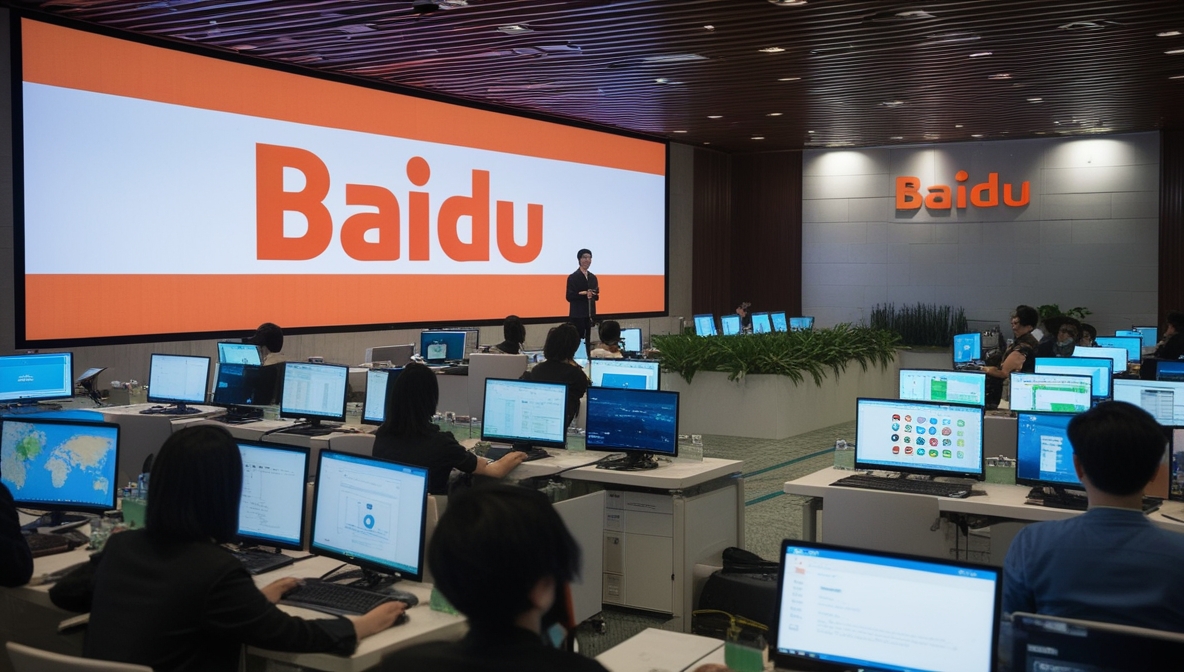
Introduction
As the world’s largest and most populous country, China represents a colossal market opportunity for businesses looking to expand their reach. However, penetrating this market requires more than just a translated website and a few ads; it demands a deep understanding of China’s unique digital landscape, especially its search engines. Unlike the Western world, where Google reigns supreme, China’s search engine market is dominated by Baidu. In this article, we’ll explore the importance of Baidu, why it’s crucial to optimize for it, and how your business can effectively harness the power of this dominant Chinese search engine.
Understanding the Chinese Search Engine Landscape

The digital ecosystem in China operates differently from the rest of the world, primarily due to the Great Firewall that restricts access to many foreign websites, including Google, Facebook, and Twitter. This has given rise to a unique set of digital platforms and search engines that cater to the specific needs of Chinese internet users. Among these, Baidu is the undisputed leader.
Baidu: The Most Used Search Engine in China

Baidu holds the lion’s share of the Chinese search engine market, with a staggering 70-80% of market penetration. Established in 2000, Baidu has developed a robust ecosystem that includes not only a search engine but also services like maps, cloud storage, and an AI-powered voice assistant. This makes Baidu the most used search engine in China, far outpacing its competitors.
However, while Baidu is the dominant force, it’s not the only player in the Chinese search engine market. Other notable search engines include Shenma, Haosou (360 Search), Sogou, and the rising star, ByteDance’s Toutiao Search. Each of these platforms has its own unique user base and search algorithm, but Baidu remains the top priority for any business looking to succeed in China.
Why Baidu SEO is Crucial for Your Business
To succeed in the Chinese market, it’s essential to prioritize Baidu SEO as part of your digital marketing strategy. Baidu’s dominance means that appearing in its search results can significantly impact your brand’s visibility and credibility in China. Here’s why Baidu SEO should be at the top of your agenda:
- Massive User Base: With over 1 billion internet users in China, most of whom use Baidu as their primary search engine, the potential reach is immense. Properly optimized content on Baidu can expose your business to a vast and highly engaged audience.
- Local Relevance: Baidu’s algorithms are specifically tailored to the Chinese language and culture, making it more adept at understanding and ranking content that resonates with Chinese users. This means that optimizing for Baidu ensures your content is relevant and appealing to your target audience.
- Trust and Credibility: In China, local users tend to trust content that appears on Baidu more than foreign platforms. High rankings on Baidu are often associated with legitimacy and reliability, which can enhance your brand’s reputation in the Chinese market.
- Comprehensive Ecosystem: Baidu’s integration with other services such as Baidu Maps, Baidu Baike (similar to Wikipedia), and Baidu Tieba (forums) provides additional avenues to enhance your brand’s visibility. Optimizing for Baidu goes beyond just the search engine; it includes optimizing for its entire ecosystem.
Key Strategies for Baidu SEO
Optimizing for Baidu is different from optimizing for Google or other Western search engines. Below are the key strategies you should consider when aiming to rank well on Baidu:
1. Language and Localization
Baidu places a strong emphasis on content that is not only in Chinese but is also culturally relevant. It’s essential to create content that resonates with the local audience by incorporating local dialects, idioms, and cultural references. Additionally, your website should be hosted in China or Hong Kong to ensure faster load times, which Baidu prioritizes in its rankings.
2. On-Page SEO Factors
Just like Google, Baidu values well-structured websites with clean, user-friendly designs. Here are some critical on-page factors to consider:
- Keywords: While keyword stuffing is penalized, ensuring that your primary keywords appear in important areas such as the title, meta descriptions, headers, and the first 100 words of your content is vital.
- Meta Tags: Unlike Google, Baidu still heavily relies on meta tags. Ensure that your meta titles and descriptions are optimized for both search engines and user readability.
- Content Quality: Baidu favors high-quality, informative content that provides real value to users. Content should be original and regularly updated to ensure it remains relevant.
3. Off-Page SEO and Link Building
Baidu’s algorithm places significant weight on backlinks, but the quality and relevance of these links are more important than their quantity. Focus on acquiring backlinks from reputable Chinese websites, directories, and forums. Additionally, consider leveraging Baidu’s own properties, such as Baidu Baike and Baidu Tieba, for link building.
4. Mobile Optimization
China has a mobile-first internet culture, and Baidu rewards websites that are optimized for mobile devices. Ensure that your website is responsive and offers a seamless user experience on smartphones and tablets.
5. Content Censorship and Compliance
Navigating China’s strict internet censorship laws is crucial for Baidu SEO. Ensure that your content complies with local regulations to avoid being blacklisted or penalized by Baidu. This includes avoiding politically sensitive topics and adhering to the guidelines set forth by the Chinese government.
6. Baidu Webmaster Tools
Just as Google offers Search Console, Baidu provides Baidu Webmaster Tools, which is essential for monitoring your site’s performance on Baidu. Use this tool to submit your sitemap, monitor your rankings, and receive notifications about potential issues such as site penalties.
Case Study: Successful Baidu SEO Implementation
To illustrate the power of Baidu SEO, consider the case of a global fashion brand that sought to expand its presence in China. By leveraging Baidu’s platform, optimizing for local keywords, and creating culturally relevant content, the brand saw a 300% increase in organic traffic from China within six months. Their strategy included hosting their website in Hong Kong for faster load times, acquiring backlinks from prominent Chinese fashion blogs, and regularly updating their Baidu Baike page to build authority.
Challenges and Considerations

While Baidu SEO offers immense potential, it’s not without challenges. One of the primary obstacles is navigating China’s complex regulatory environment. Staying compliant with censorship laws can be daunting, especially for foreign businesses unfamiliar with the nuances of Chinese regulations. Additionally, Baidu’s algorithms are less transparent than Google’s, making it more challenging to diagnose and address SEO issues.
Another consideration is the rapid pace of change in China’s digital landscape. New competitors and platforms are constantly emerging, and staying ahead requires continuous monitoring and adaptation. For example, the rise of ByteDance’s Toutiao Search presents a new opportunity but also a new challenge for businesses that have traditionally focused on Baidu.
Conclusion

Expanding your business into China is a significant opportunity, and mastering Baidu SEO is a crucial step in that journey. By understanding the unique aspects of the Chinese search engine market, prioritizing Baidu, and implementing the right strategies, your business can achieve substantial visibility and success in this vast market.
At Dust Digital Marketing Ltd., we specialize in helping businesses navigate the complexities of Baidu SEO. Whether you’re just starting out or looking to refine your existing strategy, our expertise can help you unlock the full potential of China’s digital landscape. Contact us today to learn more about our Baidu SEO services and how we can help your business grow in China.

